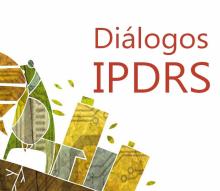/ library resources
Showing items 1 through 9 of 39.Wars and their aftermaths frequently transform land use and ownership, reshaping 'post-conflict' landscapes through new boundaries, population movements, land reforms and conditions of access.
Rural areas in Cambodia have been the target of large-scale land acquisitions since the late 1990s. As of March 2012, economic land concessions in Cambodia covered more than 2 million hectares, equivalent to over half of the country’s arable land.
This 2012 report is an assessment of the human rights impact of economic land concessions (ELCs) and other land concessions and major development projects in Cambodia.
Services are failing poor urban and
rural people in the developing world, and poverty remains
concentrated in rural areas and urban slums. This state of
affairs prevails despite prolonged efforts by many
In every region of the world, the
intensification of crop-based agriculture has been
associated with a sharp increase in the use of chemical
fertilizer. Given the generally low levels of fertilizer use
The consensus among scholars and
policymakers that "institutions matter" for
development has led inexorably to a conclusion that
"history matters," since institutions clearly form
This paper provides an overview of the
history of development research at the World Bank and points
to new future directions in both what we research and how we
research. Six main messages emerge. First, research and data
Recent global initiatives on debt relief
and development assistance call for increasing aid for trade
to the poorest countries. The paper applies a multi-country
computable general equilibrium model to measure the
Pagination
Land Library Search
Through our robust search engine, you can search for any item of the over 73,000 highly curated resources in the Land Library.
If you would like to find an overview of what is possible, feel free to peruse the Search Guide.




